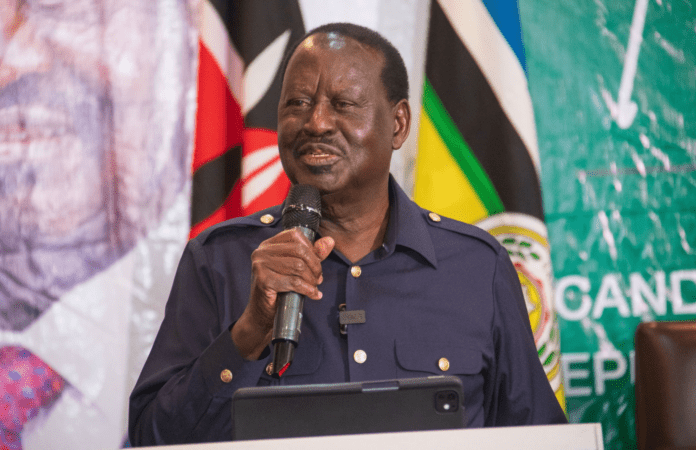Djibouti’s Mahmoud Youssouf has been elected as the new Chairperson of the African Union Commission (AUC) after securing 33 votes, ushering in a new chapter for the continental body’s leadership.
Raila Odinga’s bid for the top AUC job ended in disappointment after he lost to Youssouf in the final round of voting, bringing to an end his high-stakes campaign for continental leadership.
The defeat raises significant questions about Kenya’s diplomatic positioning, the future of the opposition leader’s political career, and President William Ruto’s broader strategy in both domestic and regional affairs.
Raila’s failure to clinch the AUC chairmanship means Kenya missed an opportunity to lead the African Union’s executive arm, a position that would have boosted the country’s diplomatic influence on the continent.
Kenya had previously fronted Amina Mohamed for the role in 2016, but she also lost. The loss may signal challenges in Kenya’s regional diplomacy and its ability to rally support among AU member states.
Having failed in five presidential bids, the AUC chairmanship was seen as an opportunity for Raila to leave the Kenyan political scene on a high note.
His loss, however, leaves open the question of his next political move. While some believe he may take a step back from active politics, others argue he could return with renewed vigor ahead of the 2027 elections.
Political analyst Fred Sasia believes the loss might force Raila to reassess his role in Kenyan politics.
“For ODM, his victory would have been a defining moment, ensuring continued relevance for the party. However, this loss means he could either go back to mobilizing opposition politics or redefine his legacy in other ways,” Sasia noted.
President William Ruto and his administration campaigned vigorously for Raila’s AUC bid, seeing it as an opportunity to sideline him from domestic politics. Ruto’s endorsement of Raila was seen as a strategic move to remove a formidable opponent from the 2027 presidential race. With Raila now out of the AUC, the likelihood of him influencing the next election remains high.
Ex-Deputy President Rigathi Gachagua had earlier remarked that Ruto’s political calculus depended on Raila’s victory.
“The President was hoping Raila would win, which would have helped him consolidate support in Raila’s strongholds. Now, that equation has changed,” Gachagua said.
The loss also raises concerns about the future of the Orange Democratic Movement (ODM) party, which has been synonymous with Raila’s leadership.
Some ODM members had pinned their hopes on his AUC win, which would have allowed a transition within the party. Political commentator Daniel Orogo warns that Raila’s loss could deepen internal ODM divisions.
“Even before his election bid, there were cracks in ODM over succession. Now, Raila will have to balance between keeping the party intact and countering Ruto’s influence in opposition strongholds,” Orogo said.
With Raila’s AUC bid unsuccessful, the political landscape in Kenya remains dynamic. He has assured his supporters that ODM will remain a strong political force regardless of the outcome.
Meanwhile, Kenya will have to rethink its diplomatic strategies after yet another unsuccessful attempt at clinching the AUC chairmanship.
The coming months will determine whether Raila reengages in domestic politics or adopts a new role in shaping Kenya’s opposition.
Whatever his next move, his influence in Kenyan politics remains significant, and his loss in Addis Ababa will have lasting implications on the country’s political future.







